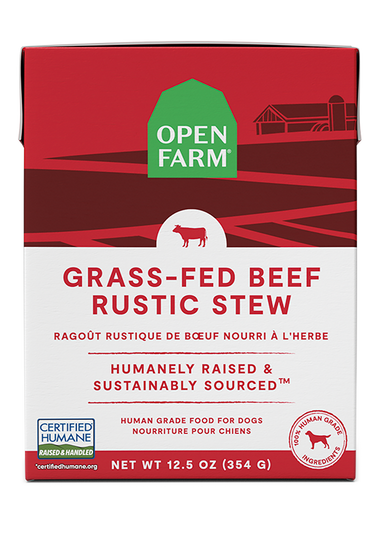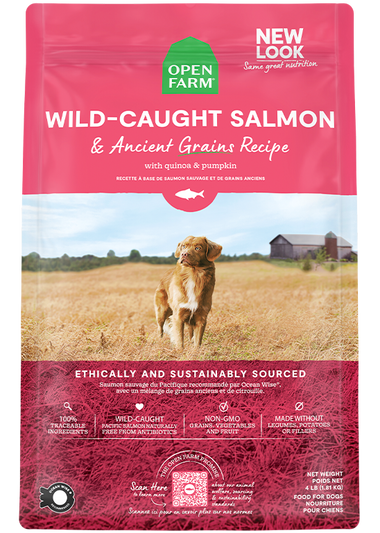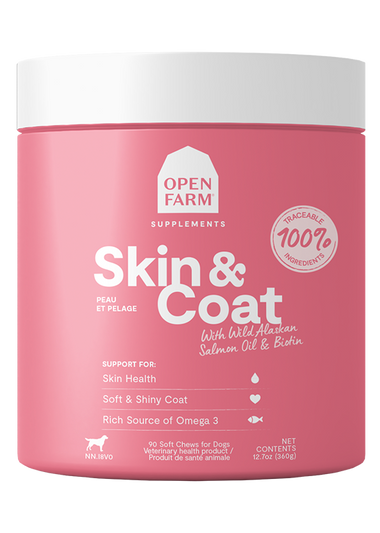Vitamins and supplements aren’t just for humans. While good dog foods should be nutritious and well-rounded, dogs may still need a nutritional supplement to fill in the gaps and support growth during life’s stages. Whether you use dry or wet food for your dog, you could benefit from supplementing.
The 10 Best Vitamin Supplements to Give Dogs
When feeding your dog, you should prioritize a well-balanced diet with foods like high protein dog food which has all the nutrients a dog needs. In addition to good nutrition, some dogs may need to supplement because of breed, size, age or health concerns. Some of the best supplements to add to dog food to improve its health include:
Vitamin A
Vitamin A is responsible for good vision. It’s also required for muscle growth, fetal development and immune health.
B Vitamins
B vitamins are a group of essential vitamins that play an important role in your dog’s health. B1 helps improve heart, brain and nerve function, while B2 breaks down fats and carbohydrates to produce energy. It also helps your dog digest food properly.
B5 helps liver health and improves eyesight, B6 regulates blood glucose and can reduce arthritis symptoms such as hip and joint pain and B9 helps to treat folic acid deficiencies and promotes a healthy metabolism. B12 helps to burn fat and carbohydrates for energy and improves cognitive function and blood cell growth.
Biotin
Biotin helps to maintain a healthy coat and skin. A biotin supplement is ideal for dogs with flaky and scaly skin, persistent rashes from seasonal allergies and alopecia.
Vitamin C Vitamin C assists collagen growth. Collagen is the main protein in bone and joint tissue. Vitamin C also helps to fight infection and may control inflammation.
Vitamin D Vitamin D helps to balance the body’s minerals to help with healthy bone and muscle growth. Carefully read and measure the vitamin D you’re offering your dog because of the toxicity risks in dogs.
Vitamin E
Vitamin E helps the immune system fight off infections. Also, vitamin E oil added to a cut or scrape can help protect cell membranes from damage.
Vitamin K
Vitamin K helps the blood’s ability to clot. Most dogs’ gut bacteria produce enough vitamin K to synthesize blot clotting proteins. However, certain conditions, such as intestinal disease and intrahepatic cholestasis, can interfere with production.
Manganese Proteinate
An often overlooked vitamin, manganese proteinate is a micromineral that can improve brain function, regulate blood sugar levels and improve bone formation and growth.
Omega-3 Fatty Acids
Fish oil is an excellent source of omega-3 fatty acid, which is great for coat and skin health. It can also reduce inflammation, improve allergies and aid in the mental development of fetuses, puppies and senior dogs.
L-Theanine
L Theanine is an amino acid that is known for its calming property. It is ideal for dogs that experience separation anxiety or overstimulation.
How to Know Which Vitamins to Choose
For specific health concerns, try some of the following supplement combinations.
For Bone and Joint Health:
- Vitamin D
- Manganese Proteinate
For Older Dogs and Puppies:
- Vitamin E
- Vitamin K
For Skin and Coat:
- B Vitamins
- Biotin
- Vitamin C
For Gut Health:
- Probiotics
- Vitamin B12
- Vitamin B2
Choose the Best Food for Your Dog
The best thing you can do for your dog is to choose healthy, well-balanced food to ensure it gets the right amounts of vitamins and minerals to support its well-being. Our high-quality, all-natural dog food is made from non-GMO, humanely-sourced, human-grade ingredients, so you can rest assured your pup is getting premium nutrition.
We create dry, wet and freeze dried food for dogs and quality supplements to ensure your dog lives a happy, healthy life.








































 Sign In
Sign In
 Create Account
Create Account















